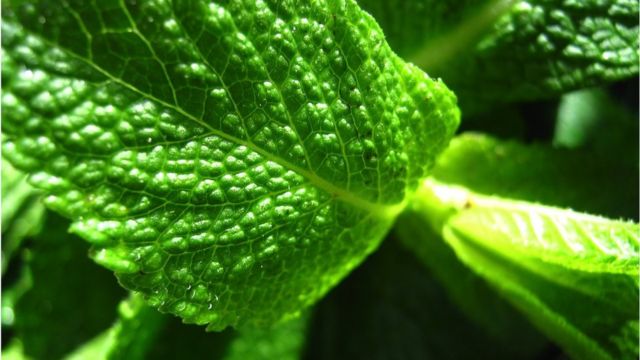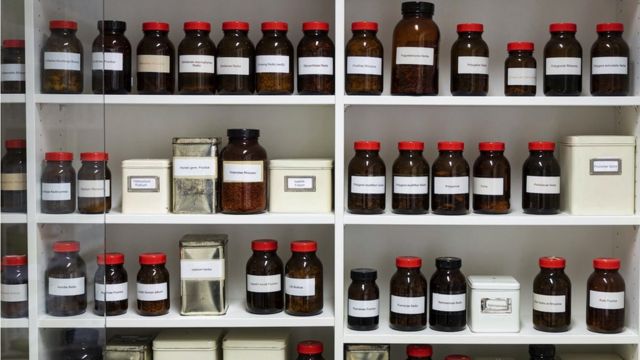Homeopathic remedies can be purchased in Belgrade pharmacies. With the arrival of more and more Russian citizens in Serbia – there are now no less than 140,000 of them – the demand for homeopathy, a form of alternative medicine, is growing in the country. In Serbia, homeopathy is officially recognized as a treatment, but in scientific circles around the world, there is still debate about its effectiveness.
“Russians who come to the pharmacy where I work are most often looking for homeopathic remedies – they are very popular there because they are widely advertised,” says Lisa, a pharmacist from Russia who has been living in Serbia for three years.
Proponents of homeopathy, including pharmacists and doctors, claim that it is an “effective and scientifically justified method of treatment” and also “very cheap.” But in 2017, a working group of the Advisory Council of the European Academy of Sciences, which includes scientists from 25 European Union countries, said there was “no convincing and irrefutable evidence that homeopathic medicines work.” In the same year, the Commission for Combating Pseudoscience of the Russian Academy of Sciences ruled that homeopathy “has no scientific basis,” but this did not lead to a change in the country’s legislation.
According to a survey conducted by the VCIOM six years ago, one in five Russian citizens has tried homeopathic treatment at least once in their lives. Similar studies have not been conducted in Serbia, so the percentage of people who believe in the effectiveness of homeopathy is unknown.
In Serbia, you can get a homeopathic consultation in certain private clinics and offices. However, it is not possible to make an appointment with a homeopath in state medical institutions. Homeopathy is a type of alternative medicine that has evolved from traditional treatment methods. In Serbia, homeopathy was officially recognized as a method in 2005, and the law recognizes it as a form of “complementary medicine”.
Vadim is about 50 years old, and for most of his life he has suffered from respiratory allergies that periodically cause him difficulty breathing. “I haven’t used any chemical substances for 12 years – I only take homeopathic remedies,” he told the BBC’s Serbian service. He moved to Serbia from Moscow two and a half years ago and settled in the city of Novi Sad.

Homeopathic preparations are mainly made from plant ingredients. We explain quickly, simply, and clearly what happened, why it matters, and what happens next. The number of episodes should remain the same. End of story Podcast advertising Vadim notes that he has “nothing against” traditional medicine, but admits that he is reluctant to take drugs such as antibiotics. “I don’t like chemistry, I would take it if I really had to, but fortunately I’ve never been in that situation,” he adds.
Although Vadim is a supporter of homeopathy, Lisa admits that colleagues often joke about it. “Russian pharmacists often say this about homeopathic remedies: if you take this pill, your cold will go away in a week, but if you don’t take it, you’ll get better in seven days,” she says. Lisa notes that the amount of homeopathic remedies available on the shelves in Serbia is “much less” than in Russia, but she does not want to name the specific remedies because she believes it might encourage people to buy them. “Some are imported from Russia and are often found in so-called Russian pharmacies,” says Lisa. She adds that Russian buyers are often shocked when they see the prices of familiar medicines in Serbia, which are “10-12 times more expensive”. Vadim buys homeopathic remedies in pharmacies, and what he can’t find, he orders by mail from Russia. According to the Serbian law on postal services, it is forbidden to send medicines by mail in Serbia, but dietary supplements are allowed. He says he hasn’t had any problems yet, “except for high postage and long waiting times.”
There are only two specialized homeopathic pharmacies in Belgrade, and one of them is the Homeopathic Center “Evremovac”. “The number of buyers from Russia is growing,” says Irena Stoykovich, the pharmacist at this pharmacy, according to the BBC. She notes that homeopathic remedies are “completely safe and can be used as a complementary therapy. “Some people choose to be treated exclusively with homeopathy, but there are situations where it is necessary to take medication,” she adds. The Pharmaceutical and Medical Devices Agency has confirmed to the Serbian service of the BBC that only 15 homeopathic medicines are registered in Serbia.
According to lawyer Dusan Rаyаkоvić, only highly qualified medical professionals can practice alternative medicine in Serbia. It also states that medical professionals who wish to practice homeopathy must undergo a training of 1200 hours over a period that should not be less than 36 months (three years). “The bar for practicing homeopathy is set high – a requirement to teach yoga is 90 hours of training,” says Rayakovich. Based on the training they receive, they can obtain a license from the Ministry of Health to practice complementary medicine. At the time of publication, the Serbian Ministry of Health did not respond to a BBC journalist’s question about how many such permits have been issued. Rayakovich reminds that providing medical services without the appropriate professional qualifications is a criminal offense, and the minimum prescribed punishment is three years in prison.
When looking for a homeopath, Russians living in Serbia usually stay within the circle of people who speak Russian. They find them through advertisements on the Internet, including on “Telegram”.

“A consultation with a homeopath is a kind of interview with the patient,” says homeopath Mirjana Madic from Novi Sad, who was trained in Russia 20 years ago. According to her, this is precisely why consultations are often held online. Lyudmila Sazonova, a homeopathic doctor and endocrinologist who has been living in Novi Sad for several years, says that she communicates with most of her patients through the Internet and that they come from different countries. “I am retired and I have no practice, I just advise people online,” Sazonova told the Serbian service of the BBC, adding that she provides services on a “voluntary basis”.
Rayakovich points out that homeopathic examinations should be conducted only in medical institutions and private medical offices. He also notes that it is important to ensure the qualifications of people who advertise themselves as homeopaths. “In Serbia, there is no accessible registry where patients can personally check the licenses of the person they plan to seek treatment from. However, every patient has the right to request the medical practitioner’s license and the license to practice a specific complementary medicine method,” he adds.
The material of Yovana Georgievski in Serbian language is available here.

